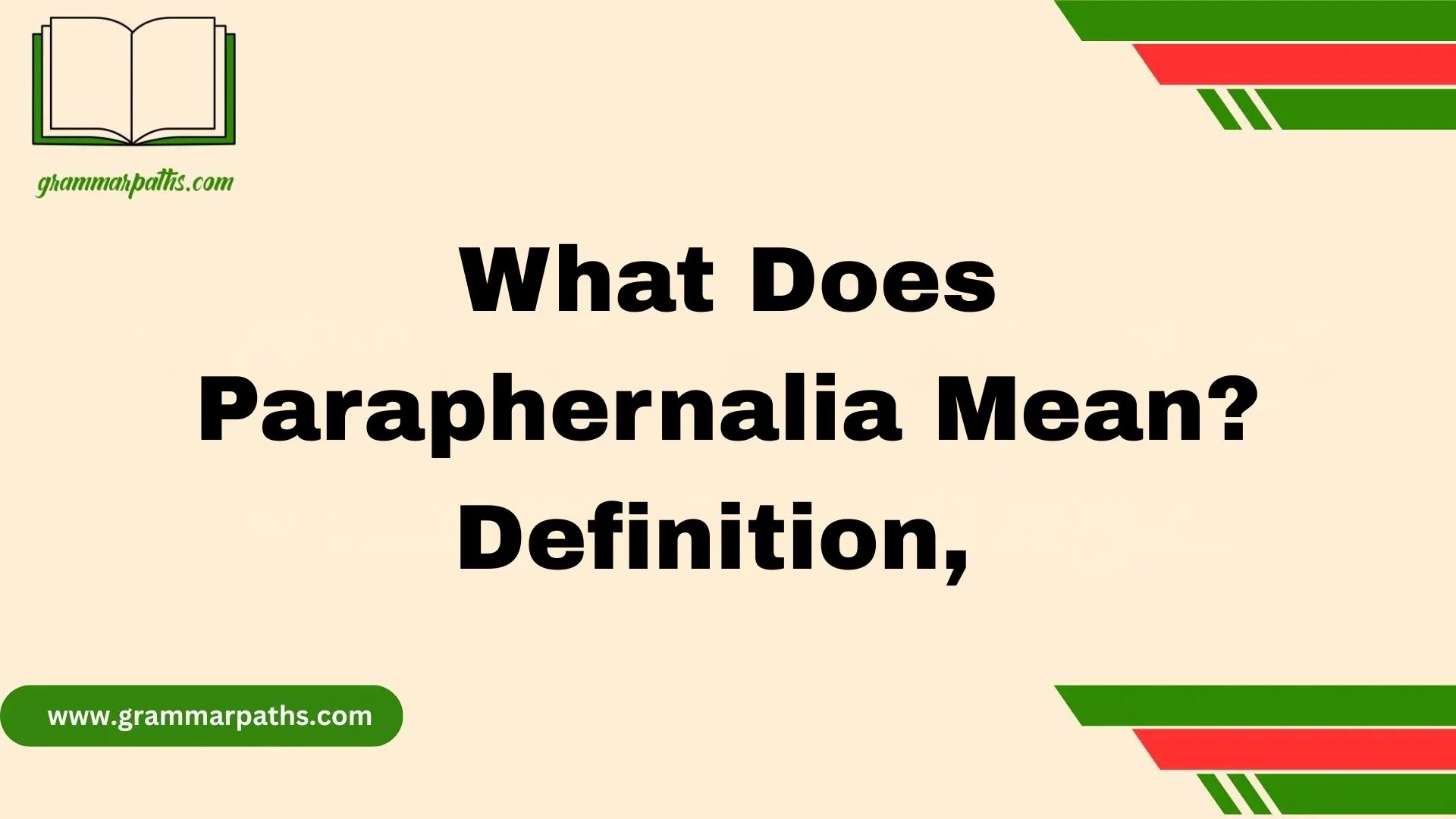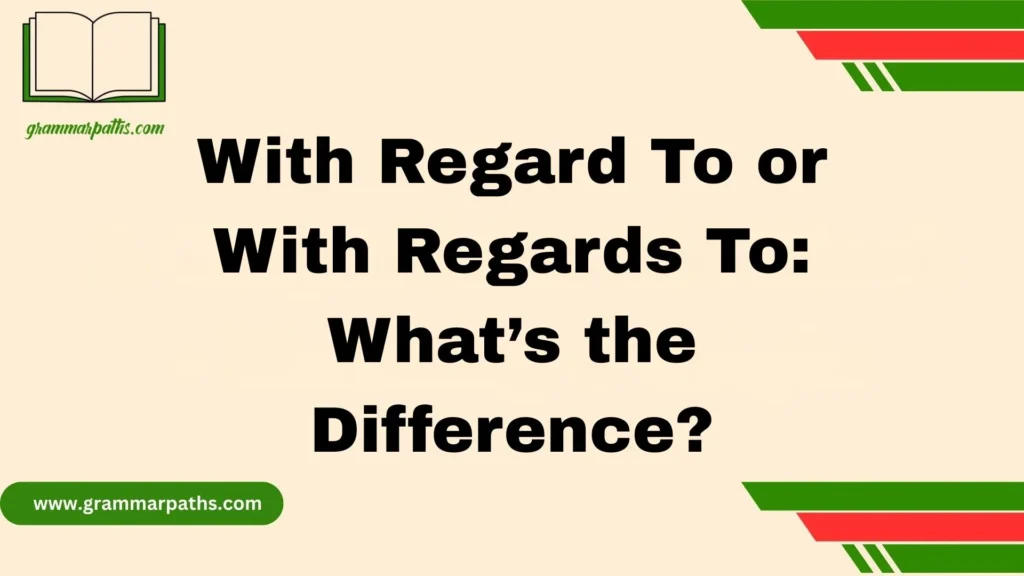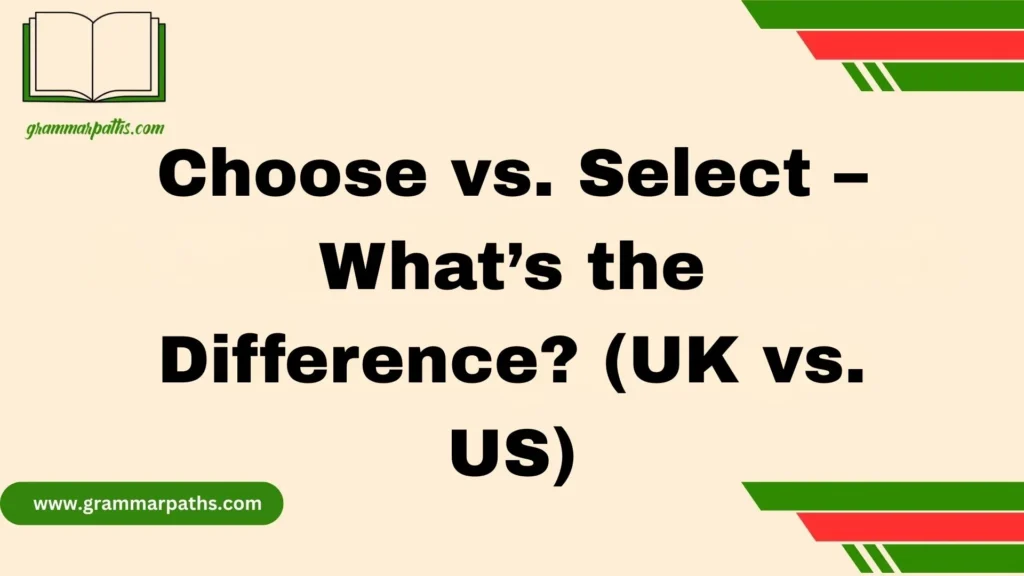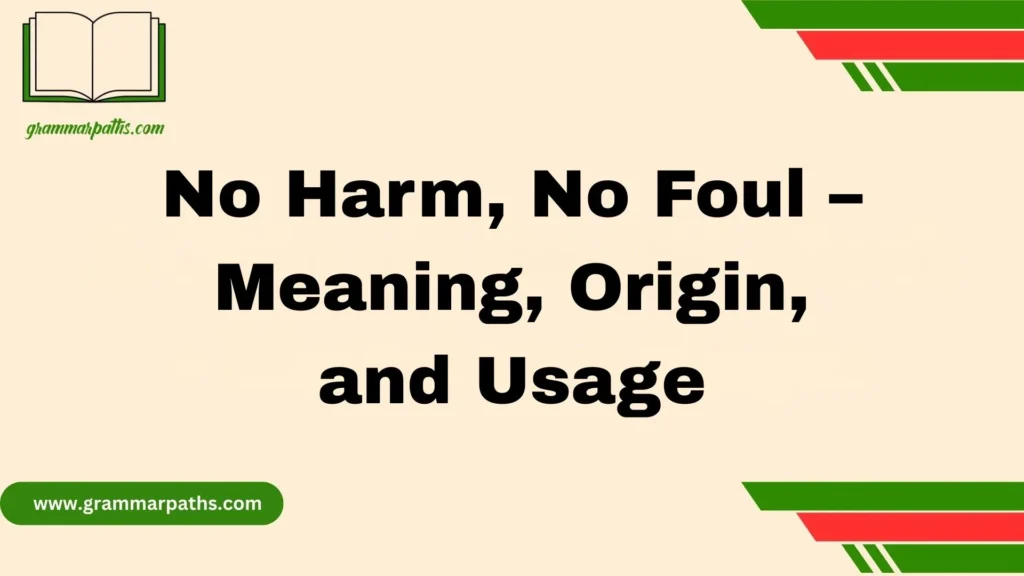When I first read the word paraphernalia in a crime report, the context was about drug laws, and honestly, it felt a bit overwhelming. The word sounded technical, serious, and carried heavy legal associations. Later, through studies, quotes, and my own thoughts on language, I realized this term is bigger than law or history—it connects to everyday life and becomes part of our vocabulary. It describes a collection of items linked to an activity, whether it’s tech gear, kitchen tools, or even something controversial like drug paraphernalia. The relevance of its meaning and definition reaches both modern and ancient contexts, which still fascinates me. From pop culture and heated discussions to personal stories, I’ve seen people—including a word-lover friend—use it to describe sewing kits or hobby supplies.
Digging into the origins, I found its historical role in married woman’s belongings apart from her husband’s estate, which adds an entirely different depth. Today, it shows up in reviews, forensic tables, cultural debates, and even among buff readers searching for a guide to words. For me, exploring it was like a deep dive into examples, facts, and how we define a word to improve our understanding of structured communication in daily conversation. Even now, hearing it in a report can feel uneasy, depending on how it’s used, but its role in shaping words and contexts remains undeniable.
The Core Definition of Paraphernalia
At its simplest, paraphernalia refers to a collection of objects, tools, or belongings that serve a particular purpose. It’s almost always plural in meaning, even though the word itself doesn’t change form.
- Formal meaning: Equipment or apparatus associated with a task or activity.
- Informal meaning: Miscellaneous personal belongings or random “stuff.”
For example:
- The photographer carried all his paraphernalia, including lenses, tripods, and lighting gear.
- Her desk was cluttered with paraphernalia—pens, sticky notes, and receipts.
What makes the term fascinating is its ability to stretch across contexts, from neutral or descriptive to negative depending on usage.
The Origins of the Word Paraphernalia
Words often carry centuries of history, and paraphernalia is no exception.
Greek Roots
The term traces back to the Greek word para (“beyond”) and phernē (“dowry”). Originally, it referred to the possessions a woman kept that were beyond her dowry—in other words, property she retained ownership of after marriage.
Medieval Latin Influence
From Greek, it passed into Medieval Latin as paraphernalia bona, meaning “the goods beyond the dowry.” These items were distinct from the formal property transferred with marriage contracts.
Shift in Meaning
By the 17th century, the English language adopted the word. Its meaning shifted from strictly legal and marital contexts into a broader sense: personal belongings or private property. Over time, it evolved further to mean equipment, gear, or assorted items tied to a specific purpose.
Modern Usage in Everyday English
Today, paraphernalia is widely used across multiple contexts:
- Neutral usage: Refers to equipment for hobbies, work, or travel.
- Casual usage: Describes personal odds and ends or miscellaneous belongings.
- Negative usage: Strongly linked to drug paraphernalia in legal and media discussions.
Example Sentences
- Before heading out on a camping trip, she gathered her outdoor paraphernalia—tents, sleeping bags, and lanterns.
- His office was stacked with paraphernalia from years of research.
- The police report mentioned paraphernalia associated with controlled substances.
This flexibility makes the word powerful but also prone to misunderstanding.
Common Examples of Paraphernalia
To ground the definition in reality, let’s look at examples across different areas of life.
| Context | Examples of Paraphernalia |
| Household | Cleaning supplies, cooking utensils, decorative items |
| Travel | Suitcases, travel pillows, passport holders, adapters |
| Sports & Hobbies | Tennis rackets, fishing rods, knitting needles, paintbrushes |
| Technology | Chargers, cables, headphones, external drives |
| Office/School | Notebooks, pens, calculators, folders |
Notice how in all these cases, paraphernalia doesn’t mean a single item—it’s the whole set.
Legal Meaning of Paraphernalia
In legal settings, paraphernalia takes on precise and sometimes heavy connotations.
Drug Paraphernalia
The most common legal use today in the United States is tied to drug laws. Under federal and state statutes, “drug paraphernalia” refers to any equipment used for producing, concealing, or consuming illegal substances.
Examples include:
- Pipes and bongs
- Syringes used illegally
- Rolling papers intended for illicit drug use
- Concealment containers
Federal law defines drug paraphernalia under 21 U.S. Code § 863, making it illegal to sell or ship such items across state lines. Penalties vary by state, but they often include fines and potential jail time.
Other Legal Contexts
While less common, paraphernalia can still appear in areas of marital property law or inheritance cases, echoing its older meaning of possessions outside of dowry or joint property.
Paraphernalia in Literature, Media, and Culture
Writers often use paraphernalia for its descriptive richness. The word suggests abundance, clutter, or specialized gear, which makes it appealing in narrative writing.
Literary Examples
- Charles Dickens frequently described characters surrounded by the “paraphernalia of wealth” or “paraphernalia of poverty,” giving readers a vivid mental picture.
- In modern novels, authors use it to illustrate hobbies, eccentricities, or lifestyles.
Media and Pop Culture
- Journalists may report on “political campaign paraphernalia” like banners, badges, and flyers.
- Sports commentators might mention the “paraphernalia of the locker room.”
In each case, the word carries more weight than just “stuff”—it signals importance, scale, or purpose.
Synonyms, Related Terms, and Nuances
While paraphernalia has many synonyms, none perfectly replace it in every context.
| Synonym | Best Context | Difference from Paraphernalia |
| Equipment | Sports, work, hobbies | More neutral, less formal |
| Apparatus | Scientific, technical, or mechanical contexts | Suggests complexity |
| Gear | Informal, outdoor, or hobby-related items | Casual tone, less formal than paraphernalia |
| Belongings | Personal property, travel, daily life | More personal; less about tools/equipment |
| Trappings | Status symbols, wealth, rituals | Carries symbolic or cultural connotation |
Key takeaway: Paraphernalia often implies a collection with specific purpose, while synonyms narrow in on subsets like tools, belongings, or symbolic items.
Practical Examples in Daily Life
Let’s bring the word into everyday experiences:
- Travel Paraphernalia: Packing cubes, passports, chargers, toiletries.
- Work Paraphernalia: Laptops, cables, sticky notes, planners.
- Student Paraphernalia: Backpacks, notebooks, calculators, sports gear.
- Hobby Paraphernalia: Guitars, amplifiers, camera lenses, camping gear.
Imagine a college dorm room. You’d likely see books, posters, laptops, chargers, sports equipment, maybe even cooking utensils. That entire mix can be summed up as student paraphernalia.
Common Misunderstandings and Misuses
A major reason paraphernalia feels confusing is because it often gets linked exclusively with drugs. This isn’t entirely accurate.
Misunderstandings
- Believing the word only means illegal equipment.
- Thinking it can refer to a single object rather than a set.
- Using it casually without realizing the legal undertones.
Correcting the Misuse
- In everyday conversation, it’s fine to say: “I packed my travel paraphernalia.”
- In legal or news contexts, make sure the phrase specifies the type: “drug paraphernalia,” “wedding paraphernalia,” or “work paraphernalia.”
Conclusion
The word paraphernalia carries more depth than many realize. From its roots in Greek and Medieval Latin to its modern use across homes, offices, hobbies, and even courtrooms, it represents collections of tools, belongings, or equipment. While the legal world often narrows it to drug-related items, the broader meaning is far more flexible and useful.
By understanding its history, synonyms, and practical applications, you can use paraphernalia confidently in speech or writing—whether you’re describing everyday belongings, professional gear, or cultural symbols.
Next time you hear or read the word, you’ll know it’s not just jargon. It’s a term that paints a picture of the objects that fill our lives and give shape to our daily activities.
FAQs
Q1: What is the simple definition of paraphernalia?
It means a collection of items or tools connected to a specific activity.
Q2: Why is paraphernalia often linked to crime or drug laws?
Because “drug paraphernalia” is a common legal phrase referring to objects used in handling illegal substances.
Q3: Does paraphernalia only have a negative context?
No, it can describe neutral or positive things like sewing supplies, tech gear, or kitchen tools.
Q4: What are the origins of the word?
In historical law, it referred to a married woman’s personal belongings separate from her husband’s estate.
Q5: Why does paraphernalia still fascinate people today?
Because it connects language, culture, discussions, and daily conversation, showing how words hold lasting relevance across contexts.

Mia Rose is the passionate writer and founder of GrammarPaths.com, a resource dedicated to helping learners master English grammar, idioms, and writing skills with ease. With a deep love for language and years of experience in teaching and content creation, Mia simplifies complex grammar rules into clear, practical guides that readers can instantly apply.












